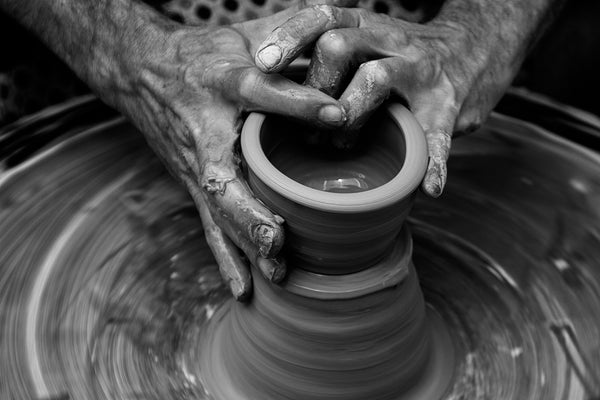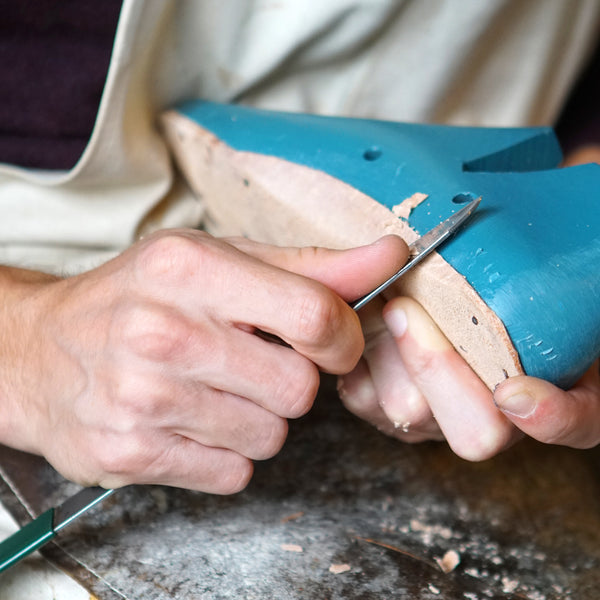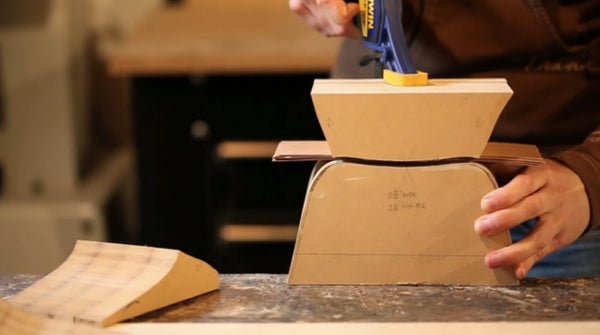
Is “Handmade” Just a Marketing Gimmick?
Interest in handmade products is on the rise - and for good reason. The shift towards purchasing handmade products is a counterpoint to the impersonal mass production and mindless purchasing we’ve become accustomed to in the past 60 years. For many who are weary of the impact that large corporations have had, buying handmade is the socially, economically, and environmentally responsible thing to do. But in this day and age of accessible technology, many consumers are not sure they can trust the “handmade” label. Handmade is a big marketing angle in our industry, and we wanted to take a second to discuss where we stand.

When you can find thousands of identical “handmade” pieces of furniture at big box stores it’s easy to give a cynical side eye at the mention of “handmade.” As soon as a product is labeled “handmade,” a massive gray area emerges in your mind. From doing everything exclusively by hand with hand-foraged materials and handmade tools to hand-finishing a bowl that was carved on a computer-guided lathe - there are many interpretations along the spectrum and it’s easy to see why “handmade” can be so confusing. It comes down to deciding for yourself where along the spectrum you’re most comfortable.
To discover where you stand, please feel free to ask questions like, whose hands made it, where it was made, out of what materials, with what methods, and was the maker respectfully compensated? Any maker of handmade products should be happy to answer all of these questions and more, and if they’re not, then that’s probably a good sign to move on. With your questions answered, you will be able to make more informed decisions that leave you feeling satisfied and proud of your purchase.

Photo by Alice Donovan Rouse on Unsplash
For me, I find it helpful to think of handmade as craft made, and when I think of craft made, I’m reminded of craft beer - all of those tiny breweries that have emerged in the past few years who produce delicious, flavorful, and unique beers. Craft breweries create their brews with passion and love, and that’s plain to taste in their mouth-watering products. They may not all be focused on creating their beer completely by hand like in centuries past because of volume demands or health and safety factors, but their craft remains their focus. It’s a responsibility to the ingredients, the process, the final product, and the customer - not just the executives and the shareholders - that set craft breweries apart from their larger corporate counterparts. That essence is what I look for in “handmade” products for my home. I want to know that the materials are sustainably and responsibly sourced, the methods used to make it will last, the design is something I won’t tire of, and the maker is adequately compensated so that they will be able to continue to make their lovely wares for years to come.

Photo by Raoul Ortega on Unsplash
Ciseal’s interpretation of handmade allows for the use of machinery and technology where it makes sense in improving the quality of the final product. We don’t hand-forage or reclaim wood from old barns because our craft doesn’t really work well with those methods. The veneers we use are sustainably sourced, and they are produced on computer-guided saws that maximize the use of the natural material. We hand-cut each layer of veneer to shape, then the glue is brushed on by hand. Our products are pressed to shape by using either manual clamps or a motorized vacuum press depending on the design’s requirements. We use hand-operated power tools like saws, sanders, and drills to prepare our products for their final hand-sanding. Then we apply a hand-rubbed finish to preserve and protect each piece. By the time it makes its way to you, each piece has had our hands all over it. Eventually, we will probably consider using industrial presses with machined dies to bend our plywood when our volume necessitates it, but much of our process will always remain very hands-on.

As a small business, it’s a challenge to balance design, production, and value to our customers all while making sure the business is producing a healthy profit that will ensure that it stays around. Someday, that balance may lead us to consider producing our products with a mass-manufacturing approach, and when that time comes we will weigh all of the costs and benefits. For now, we will stick to our almost completely hands-on process because we love what we do and how we do it and we believe it makes our products better for it. Thank you to everyone around the world who find value in our work the way it is, and thank you to those of you who want to see us grow into the biggest bent plywood manufacturer in the world. We’re humbled by your support.

